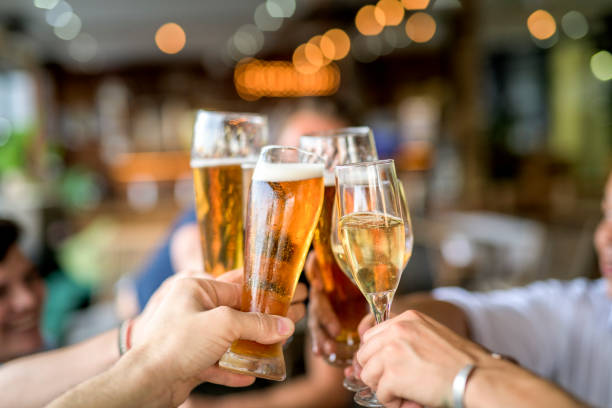
Australia’s system of taxing alcohol is ‘incoherent’, but our research suggests a single tax rate isn’t the answer
The taxation of alcohol in Australia is best described as “incoherent.”
The 2010 Henry Tax Review used the term to describe a system where some wine faces no alcohol tax at all, while expensive wine is heavily taxed and cask wines lightly. Beer (but not wine) is taxed based on alcohol content. Brandy is taxed less than other spirits. Cider is taxed differently from beer.
According to industry calculations, cask wine can be taxed as low as six cents for a standard drink. Bottled beer is 56 cents, and spirits are $1.24.
Australian Distillers Association
And yet, it is cask wine that is often said to do the most damage.
The Henry Review suggested taxing all beverages containing alcohol in excess of a small quantity at the identical rate for each unit of alcohol regardless of their type. Experts in Australia’s tax system made the recommendation.
These recommendations are based on the implicit assumption, which is largely unexplored, that alcohol is harmful in any form.
This is not the case. Our study links drinkers’ risky behaviors to the type of alcohol they consume most often.
The type of beverage can affect the damage.
We found that the regular-strength beers and pre-mixed spirit cans in a can are among those with the strongest links to drink-driving, as well as hazardous, disturbing, or abusive behaviors.
The mid-range includes cask wines, bottled spirits, liqueurs, and beers of medium strength.
The bottom of the list is low-strength beers and spirits that are pre-mixed in a can. These have the lowest risk of causing dangerous and abusive behavior when drunk.
Probability of drunk driving, by age and beverage type
RSB is Regular-Strength beer; LSB is Low-Strength beer; MSB, Mid-Strength beer; BW is Bottled Wine; Fortified Wine = Cask wine; PMSC = pre-mixed spirits in a can; PMSB= pre-mixed spirits in a bottle; BS = Bottled spirit and liqueurs. Source: Economic Record
Some of the relationships vary with the type of damage. While bottled wine is linked to a moderate to high probability of drink-driving, it is also linked to a low likelihood of hazardous, disturbing, or abusive behaviors.
The pre-mixed spirit in a glass bottle is associated with a lower risk of drunk driving, as well as dangerous, disturbing, or abusive behavior. When we take into account the gender of drinkers (alcopops are usually drunk by women), they become less safe.
Probability of hazardous, disturbing, or abusive behavior
RSB is Regular-Strength beer; LSB is Low-Strength beer; MSB is mid-strength beer; BW is bottled Wine; Fortified Wine; Cask wine; PMSC is pre-mixed spirits in a can; PMSB is pre-mixed spirits in a bottle; BS – Bottled Spirits & Liqueurs. Source: Economic Record
Our study suggests that Australia’s haphazard system of taxing alcohol might have got some things right. Beer, which is typically taxed more highly than wine, seems to do more damage.
It has some things wrong. The damage caused by cask wine is significantly less than the tax on it.
Our findings indicate that if we are to tax alcohol according to its damage, then the tax system will have to be more complex than just a single tax rate per unit, regardless of how it is packaged.